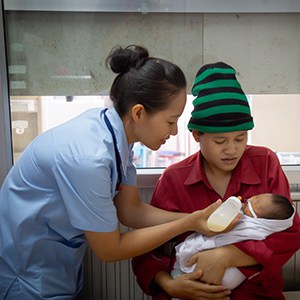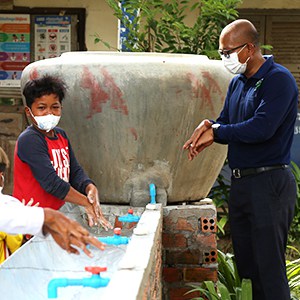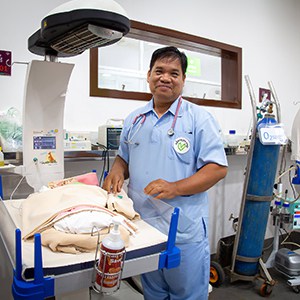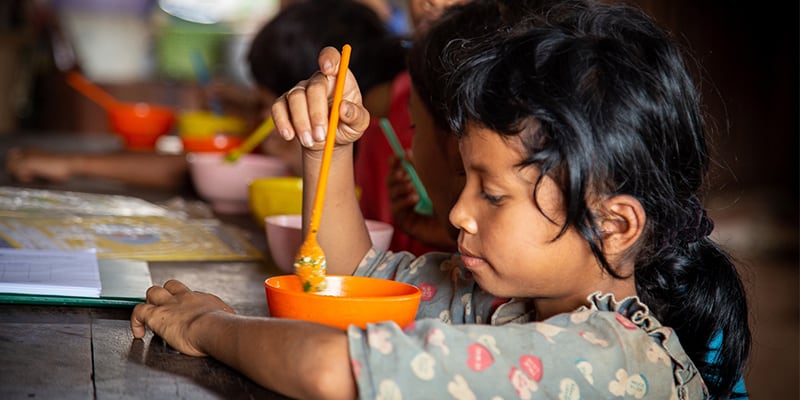In a small rural village, near the famous Beng Mealea temple, the AHC Community Outreach Team are teaching local mothers how to cook nutritious food for their children, to help address the increase of malnutrition seen in Cambodian children during the COVID-19 pandemic.
Since the global pandemic, rural communities in Cambodia have been most vulnerable to the knock-on effects of the virus. Over 72 percent of Cambodians have experienced income loss from COVID-19, according to a recent UN report, with women being hardest hit, as many work in informal employment. Economic hardship has forced families to reduce spending on food and healthcare.
Ongoing food insecurity and poor quality diets threatens to reverse the progress made in child health over the last decade, putting thousands more children at risk of stunted growth, impaired development, and serious disease. At the hospital, AHC has witnessed a 39 percent increase in children who are undernourished, compared to last year.
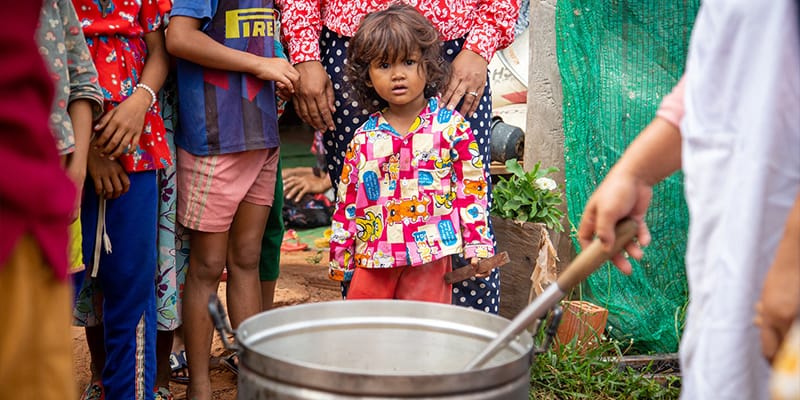
“The villagers are finding it difficult with less money coming in and the cost of food increasing,” says Phoung Thy, AHC Nutrition Project Assistant. “The villagers have resorted to finding food around their village, and their children’s nutrition is feeling the effects.” Phoung Thy and the community outreach team have resumed visiting rural villages to host cooking demonstrations and nutrition education sessions, after a brief hiatus in outreach operations caused by COVID-19.
The causes of malnutrition go beyond not having enough food to eat
Diets lacking micronutrient-rich foods, and not having access to clean water and sanitation, contribute to malnutrition in children, making them more vulnerable to infection and disease. Micronutrient deficiencies, like iron deficiency anemia, not only affects physical growth and the immune system, it can also impair mental performance, coordination, and language skills. A 2016 study found 32.0% of Cambodian children (aged 6-59 months) living in rural areas were severely anemic, resulting in debilitating consequences to their health and productivity.
At the rural village, the AHC team have gathered with over a dozen mothers and their children to share in a morning of cooking, eating, and hands-on learning. The village’s central meetinghouse is filled with playful gossip as the children wait patiently for today’s meal to be served from the fire outside, the smoke from which has already clouded the animated room.
The mothers are learning how to cook nutritious porridge using healthy and affordable ingredients that they can source from their local market and gardens including pumpkin, spinach, fish, and rice. “It is helpful when the ingredients are ones we can find or grow easily,” says Rotha, a mother of five, who is acting as the cook at today’s session, “that way we can cook healthier food more often, instead of resorting to cheap processed food.”
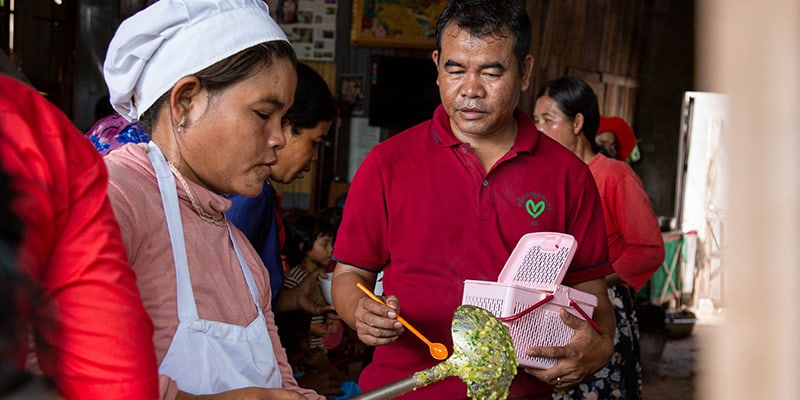
As well as learning how to cook healthier food, mothers are taught about the different food groups and the importance of having a diverse diet. Because meat is becoming increasingly expensive, mothers need to include more food groups and other sources of protein to enrich their child’s diet. “Today I have learnt some new ways I can improve my family’s health,” says Rotha, “I will teach my children so they can help me cook these new foods in our kitchen. With a healthier diet we can prevent sickness in our family.”
The community outreach team travels over two hours from Siem Reap to reach rural villages in the surrounding provinces. However, according to Phoung Thy, it can often take double that time because of flooded roads during wet season. On the day of the trip, the team visits the local market to buy all the ingredients needed for the day’s cooking demonstration, and sets off in the AHC motorised mobile kitchen unit. The team repeat this process many times per week, often sleeping overnight in rural villages, spending days away from their family, in order to improve the lives of Cambodia’s hardest to reach communities.
Herbalife Nutrition Foundation kindly sponsors the AHC cooking demonstration activities and motorised mobile kitchen unit. The mobile kitchen gives AHC access to hard-to-reach areas, helping the team build nutrition knowledge in the most vulnerable and isolated communities needing relief.
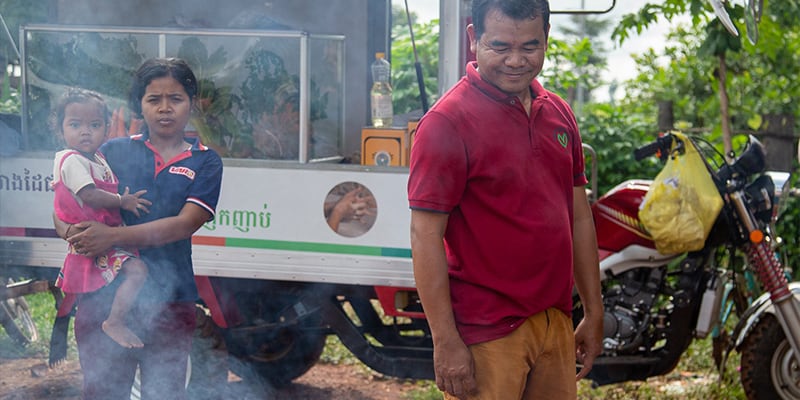
This quarter, the community outreach team has educated over 120,000 villagers on a range of health topics since operations restarted after the global pandemic began, through both community meetings and public broadcasts of COVID-19 prevention information.
For many years, poor diets have affected the health of Cambodia’s children and the current crisis is only amplifying the burden caused by malnutrition. AHC understands the importance nutrition plays in fostering healthy communities. The AHC nutrition programme will continue to foster healthy communities by improving nutrition and will remain committed to protecting and improving child health in Cambodia.
